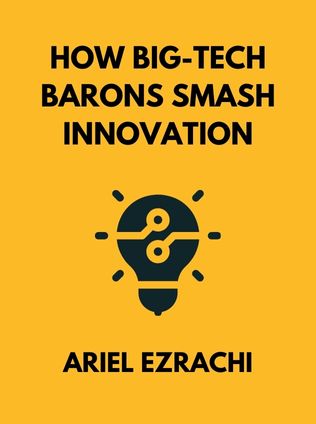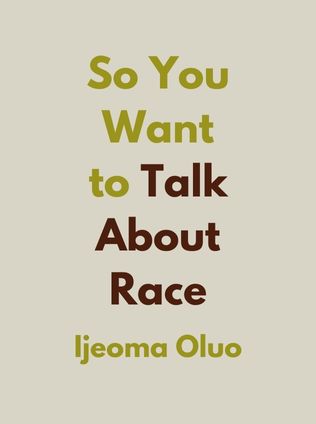
How Big-Tech Barons Smash Innovation
And How to Strike Back
By Ariel Ezrachi,
Published 06/2022
About the Authors
Ariel Ezrachi and Maurice E. Stucke are the brilliant minds behind How Big-Tech Barons Smash Innovation – And How to Strike Back. Ariel Ezrachi is a recognized authority in competition law and policy, serving as the Slaughter and May Professor of Competition Law at the University of Oxford. He has an extensive background in examining the interplay between competition law, artificial intelligence, and innovation. Maurice E. Stucke, a Professor of Law at the University of Tennessee, has an impressive track record as a former prosecutor at the United States Department of Justice and is a globally acknowledged expert on competition policy and digital markets. Together, they bring a wealth of knowledge and a critical eye to the examination of big tech and its impacts on innovation.
Main Idea
The book delves into the rise of powerful tech giants, often referred to as the "Tech Barons," and their substantial influence on innovation. Ezrachi and Stucke argue that these Tech Barons—Google, Apple, Facebook, Amazon, and Microsoft (GAFAM)—wield their power to suppress disruptive innovation, thereby harming competition, consumer welfare, and societal progress. They propose a strategic response to counteract this trend and restore the potential for genuine innovation in the digital economy.
Table of Contents
- The Rise of the Big-Tech Barons
- The Tech Barons' Ecosystem
- The Tech Pirates
- Disrupting Disruptive Innovation
- Distorting the Demand for Innovation
- Toxic Innovation Galore
- Ripple Effects
- Current Antitrust Enforcement
- The Way Forward: Three Fundamental Principles
The Rise of the Big-Tech Barons
Ezrachi and Stucke begin by highlighting how Tech Barons have ascended to unprecedented levels of influence and control. These companies, often operating as interconnected ecosystems, dominate the digital landscape by leveraging their platforms to create and maintain competitive advantages. They act as gatekeepers, controlling access to crucial resources and data, and dictating the rules within their ecosystems.
"The Tech Barons create and enforce the rules of the ecosystem and ensure they benefit them." – Ariel Ezrachi and Maurice E. Stucke
this control include:
- Google's dominance in search and advertising.
- Apple's tight control over its App Store and ecosystem.
- Amazon's extensive reach in e-commerce and cloud services.
Their influence extends beyond mere control of markets; they shape the very nature of innovation itself. By investing heavily in R&D and acquiring emerging threats, they ensure that only innovations that fit their strategic interests flourish. This centralization of power and innovation stifles competition and limits the diversity of technological advancements available to society.
The rise of these Tech Barons is attributed to their ability to build vast ecosystems that offer unparalleled convenience and integration. These ecosystems create a network effect, where the value of the platform increases with the number of users and services connected to it. This network effect solidifies their dominance and makes it exceedingly difficult for new entrants to compete.
The Tech Barons' Ecosystem
The authors explain that these ecosystems are more than just a collection of platforms and services. They are sophisticated networks where the Tech Barons exercise unparalleled access to data and control over the market. By designing and supporting the infrastructure, they ensure their ecosystems remain dominant and resistant to disruption.
This control allows them to block or absorb innovative threats, making it challenging for new entrants to succeed. The ecosystem's strength lies in its interconnectedness, which provides significant benefits to the Tech Barons:
- They can integrate and enhance their products and services efficiently.
- They gain insights into market trends and emerging threats through advanced data analytics.
- They establish high barriers to entry, discouraging potential competitors.
"One may avoid a platform, but not the Tech Barons’ expanding and tightly controlled ecosystem." – Ariel Ezrachi and Maurice E. Stucke
For example, Google’s ecosystem spans search, advertising, mobile operating systems, and smart home devices. Apple's ecosystem includes hardware, software, and services that are seamlessly integrated. Amazon's ecosystem covers e-commerce, cloud computing, and logistics. These ecosystems create a lock-in effect, where users find it difficult to switch to competing services without losing significant benefits.
Sign up for FREE and get access to 1,400+ books summaries.
You May Also Like
Rich Dad Poor Dad
What the Rich Teach Their Kids About Money - That the Poor and Middle Class Do Not!
By Robert T. KiyosakiFreakonomics
A Rogue Economist Explores the Hidden Side of Everything
By Steven D. Levitt and Stephen J. DubnerI Am Malala
The Story of the Girl Who Stood Up for Education and Was Shot by the Taliban
By Malala YousafzaiFactfulness
Ten Reasons We're Wrong About the World – and Why Things Are Better Than You Think
By Hans Rosling



















